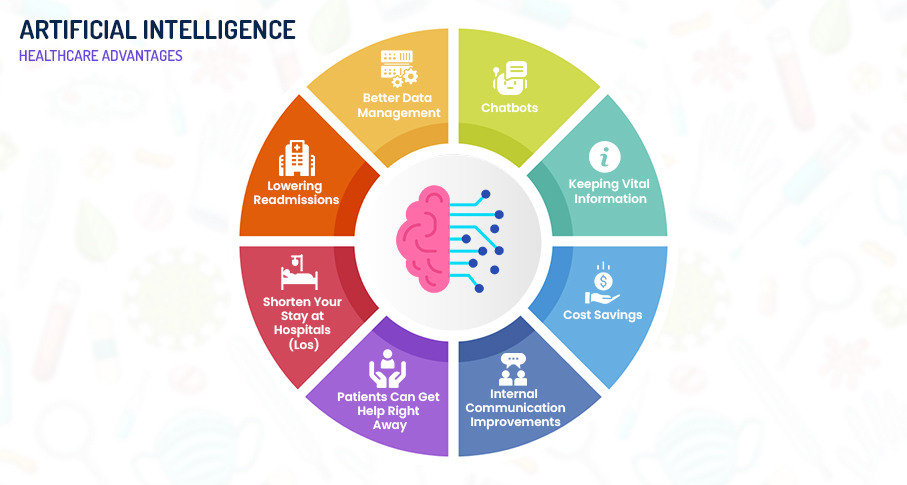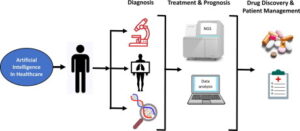Benefits of AI in Health Data Management

The healthcare industry is experiencing a profound transformation due to the integration of Artificial Intelligence (AI) into health data management. AI technologies are revolutionizing the way healthcare organizations collect, analyze, and utilize health data, leading to more efficient operations, improved patient outcomes, and enhanced decision-making processes. By harnessing the power of AI, healthcare providers can unlock new insights from vast amounts of data, streamline administrative tasks, and deliver personalized care. This article explores the myriad benefits of AI in health data management and its impact on the healthcare landscape.
Enhanced Data Accuracy and Quality
One of the primary benefits of AI in health data management is the enhancement of data accuracy and quality. Traditional data entry methods, which often rely on manual input, are prone to errors and inconsistencies. AI-powered tools, such as natural language processing (NLP) and machine learning algorithms, can significantly reduce these errors by automating data entry and validation processes. NLP algorithms, for instance, can extract relevant information from unstructured data sources, such as clinical notes and medical records, and convert it into structured formats that are easier to analyze.
AI can also identify and correct discrepancies in health data, ensuring that the information used for clinical decision-making is reliable and accurate. By improving data quality, AI helps healthcare providers make more informed decisions, reduce the risk of medical errors, and enhance overall patient care.
Streamlined Data Management and Integration
AI facilitates the efficient management and integration of health data from diverse sources. In a healthcare setting, data is generated from various systems, including electronic health records (EHRs), laboratory information systems, and imaging systems. Integrating these disparate data sources into a cohesive system is a complex and time-consuming task.
AI technologies, such as machine learning and data mining, can streamline this process by automatically aggregating and harmonizing data from different sources. This integration allows healthcare providers to have a comprehensive view of a patient’s health history, enabling more effective coordination of care. For example, AI-driven systems can merge data from EHRs, lab results, and imaging studies to create a unified patient profile, making it easier for clinicians to access relevant information and make well-informed treatment decisions.
Advanced Data Analytics and Insights
AI excels in advanced data analytics, offering healthcare organizations the ability to extract meaningful insights from large volumes of health data. Machine learning algorithms can analyze complex datasets, identify patterns, and generate predictive models that help in understanding trends and forecasting future health outcomes. These capabilities are invaluable for clinical research, population health management, and personalized medicine.
For instance, AI can analyze patient data to identify risk factors for chronic diseases, such as diabetes and cardiovascular conditions. By recognizing these risk factors early, healthcare providers can implement preventive measures and personalized treatment plans to improve patient outcomes. Additionally, AI-driven analytics can support clinical trials by identifying suitable candidates, monitoring progress, and analyzing results more efficiently.
Improved Patient Care and Personalization
AI’s ability to analyze and interpret health data allows for more personalized and effective patient care. By leveraging data from various sources, including patient records, genetic information, and lifestyle data, AI can help tailor treatment plans to individual patients. This personalized approach not only improves treatment efficacy but also enhances patient engagement and satisfaction.
For example, AI can analyze genetic data to identify the most suitable medications for patients with specific genetic profiles, leading to more targeted and effective treatments. In chronic disease management, AI can monitor patients’ health data in real time, providing insights into how well they are responding to treatment and suggesting adjustments as needed. This personalized approach ensures that patients receive care that is specifically tailored to their unique needs and circumstances.
Enhanced Operational Efficiency
AI improves operational efficiency in health data management by automating routine tasks and optimizing workflows. Administrative tasks such as appointment scheduling, billing, and claims processing can be time-consuming and prone to human error. AI-powered systems can automate these processes, reducing the administrative burden on healthcare staff and minimizing errors.
For example, AI-driven chatbots can handle routine patient inquiries, schedule appointments, and provide reminders, allowing healthcare professionals to focus on more complex tasks. Similarly, AI algorithms can streamline the billing and coding process by accurately capturing and processing data, reducing the risk of billing errors and ensuring timely reimbursements. By improving operational efficiency, AI enables healthcare organizations to deliver better care and allocate resources more effectively.
Enhanced Data Security and Privacy
Data security and privacy are critical concerns in health data management, and AI offers advanced solutions to address these challenges. AI-powered systems can detect and respond to potential security threats in real time, protecting sensitive health information from unauthorized access and breaches. Machine learning algorithms can monitor network activity, identify unusual patterns, and alert security teams to potential threats.
Additionally, AI can support compliance with data privacy regulations, such as the Health Insurance Portability and Accountability Act (HIPAA), by automating data protection measures and ensuring that patient information is handled securely. By enhancing data security and privacy, AI helps build trust in health data management systems and ensures that patient information is safeguarded.
Facilitating Research and Innovation
AI plays a crucial role in advancing medical research and innovation by providing researchers with powerful tools for data analysis and interpretation. AI-driven technologies can analyze vast amounts of research data, identify novel patterns, and generate new hypotheses, accelerating the pace of scientific discovery.
For example, AI can analyze genomic data to identify potential biomarkers for diseases, leading to the development of new diagnostic tests and treatments. Additionally, AI can support drug discovery by predicting the effectiveness of new compounds and optimizing clinical trial designs. By facilitating research and innovation, AI contributes to the advancement of medical science and the development of cutting-edge treatments.
Conclusion
AI is transforming health data management by enhancing data accuracy, streamlining integration, providing advanced analytics, improving patient care, increasing operational efficiency, and bolstering data security. The integration of AI into health data management systems offers numerous benefits, from personalized patient care to accelerated research and innovation. As AI technology continues to evolve, its role in healthcare will likely expand, leading to even greater improvements in the management and utilization of health data. By leveraging AI’s capabilities, healthcare organizations can achieve better outcomes, enhance patient care, and drive the future of healthcare forward.




